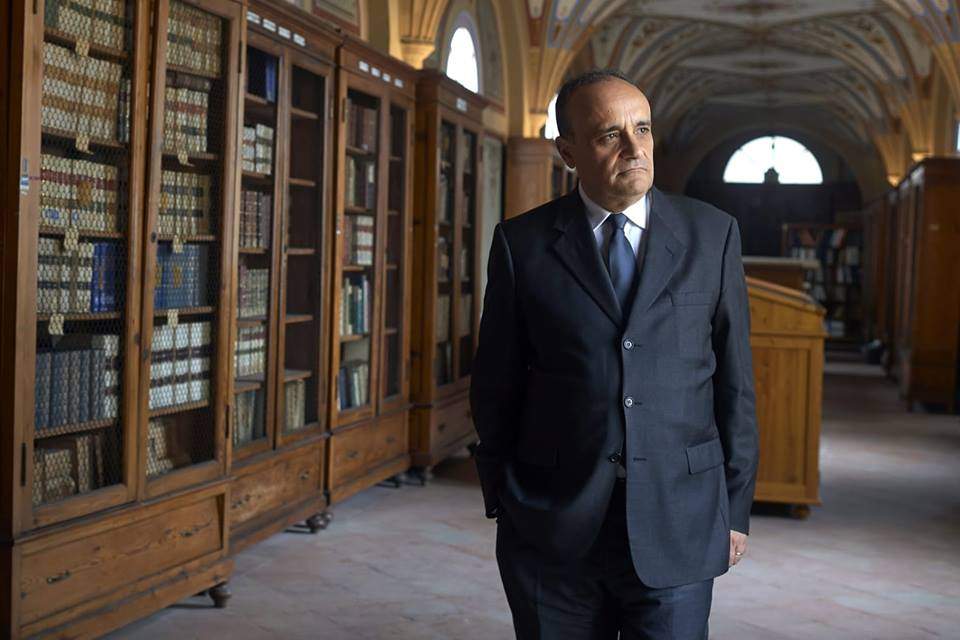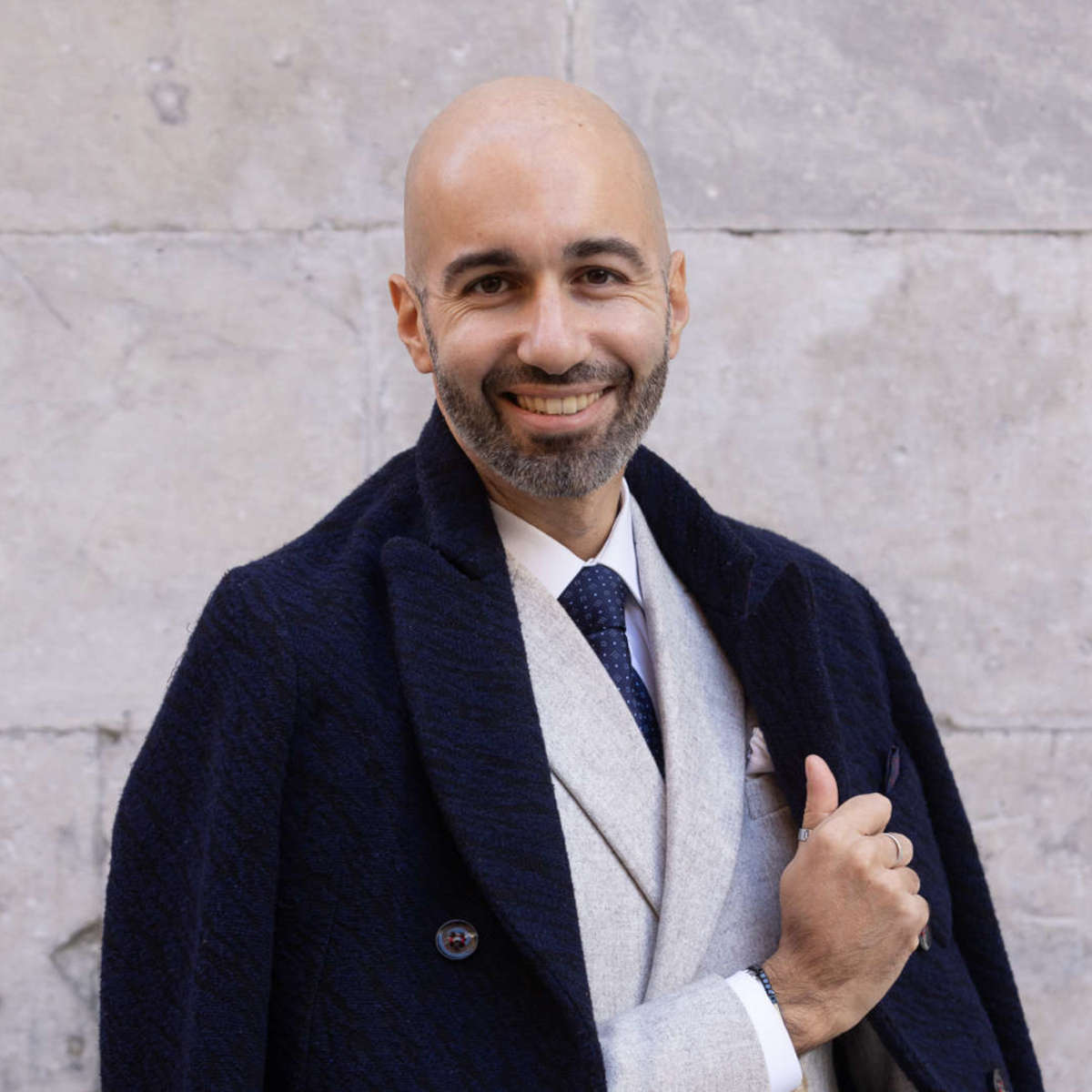Dear friends of Finestre Sull’Arte,
we believe that a newspaper performs a fundamental service for its readers when, in addition to guaranteeing up-to-date and accurate daily information, it is also able to conduct timely in-depth analysis: that is why you can read, every week, popular articles, reviews, editorials, interviews in our newspaper. Because in-depth coverage serves to offer the public more tools to understand the world, in our case the world of art and cultural heritage. And it is precisely with the aim of providing you with a service that we intended to interview the new minister of cultural heritage, Alberto Bonisoli, on topics that we believe are of extreme interest to the large audience that follows us.
Unfortunately, we must inform you that you will not be able to read the interview we had planned to conduct with Alberto Bonisoli. Since the first contacts with the minister, which date back to June 24, we have scrupulously followed the protocol that was indicated to us by the press office, adhering to all requests. However, despite repeated reminders, we were left in a state of uncertainty; we never knew whether the minister was willing to give the interview and, as a result, we never received answers to the questions we intended to ask him.
We therefore decided to publish the five questions (this is the maximum number set by the press office). So here, below, is the interview as it was sent to the press office, in the revised and updated version dated July 24, a little less than a month after the first version was sent, dating back to June 26.
 |
| Minister Alberto Bonisoli |
1) Dear Minister, Your first statements dealt with the issue of employment, and on the occasion of Your first official outing, in Pompeii, You stressed the importance of encouraging the employment of qualified professionals and the need for hiring with serious contracts, therefore permanent contracts. We come up against two problems, however. The first is the reckless recourse to volunteerism as a substitute for work, and at the end of the last legislature, a bill emerged from the grassroots to ensure that the ministry avoids making up for its shortcomings through volunteer associations: You explained that volunteerism, as well as the use of civil service or in-house companies, has its own raison d’être for temporary situations. How do you intend to move to solve this problem? The second concerns coverage: in the last five years, MiBAC’s staffing has been reduced by about five thousand, and you yourself stated that the ministry is understaffed by 3,000. Therefore, you have put forward the idea of launching a two-thousand-seat competition for 2019, but to hire two-thousand technical officers framed in the F1 position requires at least eighty million euros per year. How does he plan to find the cover to hire staff?
2) In the 5 Star Movement’s program, it was pointed out that the recent reform of the ministry has made it difficult to carry out the functions of protection and enhancement: in particular, there would be a lack of coordination since the reform has divided competencies between superintendencies (which deal with protection) and museums (which deal with enhancement), when previously the functions were united and inseparable. Again, it has been said that the reform has had negative effects on museums (declines in visits and revenue). How do you plan to review or reorganize the ministry? And is there anything about the reform that you think can be saved instead?
3) In Italy there is very little talk about research, and our museums do little research, or at any rate do less than foreign museums, so much so that many professionals, Italian or foreign working in Italy, are not infrequently driven to leave Italian museums attracted by the fact that research, abroad, is often held in higher regard than in Italy. Should this trend not be reversed? Is it possible, in your opinion, to do something concrete for research in the field of cultural heritage?
4) In comparison with European museums, we lag behind especially in two areas: access and digital culture. Regarding access, many European museums provide facilities that can really guarantee access for all: discounts or free admission for those who are not employed, year-round evening openings, ticket validity extended over several days, agreements with other cultural institutions. We, on the other hand, have only one Sunday a month of free admission for all, an initiative that does not find unanimous favor, however. In your opinion, can anything be done to bring us in line with European standards? On the other hand, as far as digital culture is concerned, a survey by the Observatory for Digital Innovation in Cultural Heritage and Activities, conducted on 476 museums, found that only 57 percent of them have a website and only 52 percent a social account. And these are often unsatisfactory sites or accounts. What could be done to improve the situation?
5) Let’s close with a direct question: can you name one measure that we should expect in your first 100 days of action as minister?

The author of this article: Federico Giannini
Nato a Massa nel 1986, si è laureato nel 2010 in Informatica Umanistica all’Università di Pisa. Nel 2009 ha iniziato a lavorare nel settore della comunicazione su web, con particolare riferimento alla comunicazione per i beni culturali. Nel 2017 ha fondato con Ilaria Baratta la rivista Finestre sull’Arte. Dalla fondazione è direttore responsabile della rivista. Nel 2025 ha scritto il libro Vero, Falso, Fake. Credenze, errori e falsità nel mondo dell'arte (Giunti editore). Collabora e ha collaborato con diverse riviste, tra cui Art e Dossier e Left, e per la televisione è stato autore del documentario Le mani dell’arte (Rai 5) ed è stato tra i presentatori del programma Dorian – L’arte non invecchia (Rai 5). Al suo attivo anche docenze in materia di giornalismo culturale all'Università di Genova e all'Ordine dei Giornalisti, inoltre partecipa regolarmente come relatore e moderatore su temi di arte e cultura a numerosi convegni (tra gli altri: Lu.Bec. Lucca Beni Culturali, Ro.Me Exhibition, Con-Vivere Festival, TTG Travel Experience).
Warning: the translation into English of the original Italian article was created using automatic tools. We undertake to review all articles, but we do not guarantee the total absence of inaccuracies in the translation due to the program. You can find the original by clicking on the ITA button. If you find any mistake,please contact us.